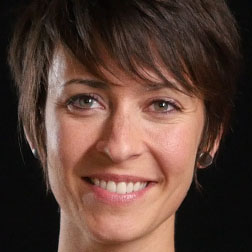Like most kids, when I was a little girl I eagerly anticipated the transition from school to the freedom of summer. But the real highlight for me was the opportunity to travel up the hill to the public library (much more mysterious and shadowy than our protestant elementary school library) once a week to select new reading material. I climbed the hill, pulling my red wagon behind me; I was allowed to borrow only as many books as filled my wagon, providing I returned them all by week’s end.
I’ll be the first to admit that I was a little greedy.
I became adept at making spatially savvy selections. I strategically selected non-slip covers and optimized book size and packing techniques so that I could maximize my ‘haul’.
Oh, how I loved pouring through those treasures…and the anticipation of what might be in the next wagon.
Fast forward to today, and my tables are stacked with books. Long lists of bookmarked sites. A contact list full of people with ideas, expertise, connections. RSS feeds, Twitter, Stumbleupon, MashUp, Pinterest etc. An almost insatiable interest in what is new, what is relevant, what is trending, and what is necessary and important for me to know—for me to be adequate to the task, to be relevant and on trend.
For many years, I was an ardent subscriber to one of today’s most highly regarded trade publications. I eagerly received my new editions, and carefully saved all of them. I did this for many years, believing (as I think many of us do) that my level of knowledge was an indicator of my relevance—an assumption that my ability to offer something of value was linked to how much knowledge I could access in any one moment.
Eventually, I cancelled my subscription (it might have been around the time I was looking to buy a new bookcase to better house my collection of publications). I realized that I was becoming a librarian. The knowledge stored in my bookcases wasn’t accessible to me in the moment with a client. The value I brought as a strategic partner and facilitator wasn’t derived from what I knew.
In fact, my value stood out through most notably in my ability to release knowing and welcome not knowing. To be present and attentive, to listen deeply to what is arising in the moment, and to respond, adapt and engage with the subtle dimensions of group process.
Don’t get me wrong, I love my books and what they represent—leadership, facilitation, psychology, management, strategy, zen, integral theory, economics, wisdom, marketing, communications, sociology. But there are greatly diminishing returns in this old model of acquisitional learning, particularly because of the decreasing half life of anything we (think we) know now and the increasing complexity of the issues we face.
Today, this insatiability for acquisition is mirrored back to me across multiple dimensions of our social world. It appears everywhere, this almost frenetic growth energy, a relentless grasping and clamoring for more. What’s newer, quicker, more uncommon or undiscovered? What’s next? The loudest and most credible voices tend to be those that are selling solutions to ‘hack the code’ behind the discipline.
There’s nothing intrinsically wrong with knowledge and novelty. What matters is the intention with which we hunger after it.
If we look at the kind of responsiveness and adaptability the world demands to meet the challenges of complexity and change, responsiveness has to be generated from within, not found and referenced in a publication. It requires a shift from acquisition of something out there to a developmental mindset that seeks feedback and learning in order to drive self development.
The most crucial moments in my work as a facilitative leader are those moments that call for a skillful response or a skillful pause. In these moments, there is neither the time to turn to “the wagon” nor any guarantee that the wagon holds the answer—whether facts, techniques, models, or know-how.
And taking on more actually slows us down, dulls the freshness by which we can perceive solutions, separates us from the energy in the moment. In our knowing, we are held back from sensing what is emerging from the whole subtle field in which we are participating with a question much bigger than any one of us can possibly answer. Otto Scharmer calls this a type of listening which “originates outside the world of our preconceived notions.”
The shift we are living today is from a world where individuals had answers to one where the collective, collaborative process holds the answer. Through emergent collaboration, we create new space for productivity and generativity. That’s why we’re talking about the importance of facilitative leadership and not better knowledge leadership.
What we need are facilitative leaders who can work with the subtle and complex process of group dynamics. We need facilitative leaders who can disconnect from being the expert. We need leaders who can let go of acquisition and instead take a stance of curiosity. Who we are being asked to become is more capable facilitators of wisdom.
Rebecca Colwell
Co-founder & Program Director
Integral Facilitator



5 thoughts on “The mindset of collaboration: The one thing you can’t fit in a wagon”
Hi Becky,
Cute, I loved the wagon strategy!
The hack culture, which seems to have a whole ox-herd narrative all by itself, misses exactly what you are pointing too with Otto’s perception. One way I have begun to explore this, and I stress ‘begun’, is from the world of Formula 1 motor racing. Seconds count, and the teams try to create faster all the time. Over the years they all see that where these improvements really take place is in the interfaces. I really like that as a model for engagement, especially in a more masculine or ‘judging rather than perceiving’ type.
Thanks for interfacing me today! 🙂
Hey Gregor, thanks for the reflection. Love the metaphor! Say more…
Thanks for this post Rebecca,
I find this movement away from the wagon (although still having access to the wagon!) an essential maneuver for leaders working in complex and competitive markets. Applying fixed theories, interventions and strategies are no longer cutting it in many cases. Innovating your own approaches is a second option that, while often yields greater returns, still falls short as even this strategy limits creativity. Optimal adaptability, as I often call it, is rooted in the co-creative exchange born from a rich and bold curiosity. Most professionals lack the courage to not know in the face of their consulting, leadership or management. Yet, these advanced maneuvers are REQUIRED if we are to yield a higher level of creativity, productivity and differentiation from competition.
An elegant post!
~Rob
Pingback: #Network #Process #PatternDynamics | PatternDynamics™
Amen, sister! Love all things Otto Scharmer.